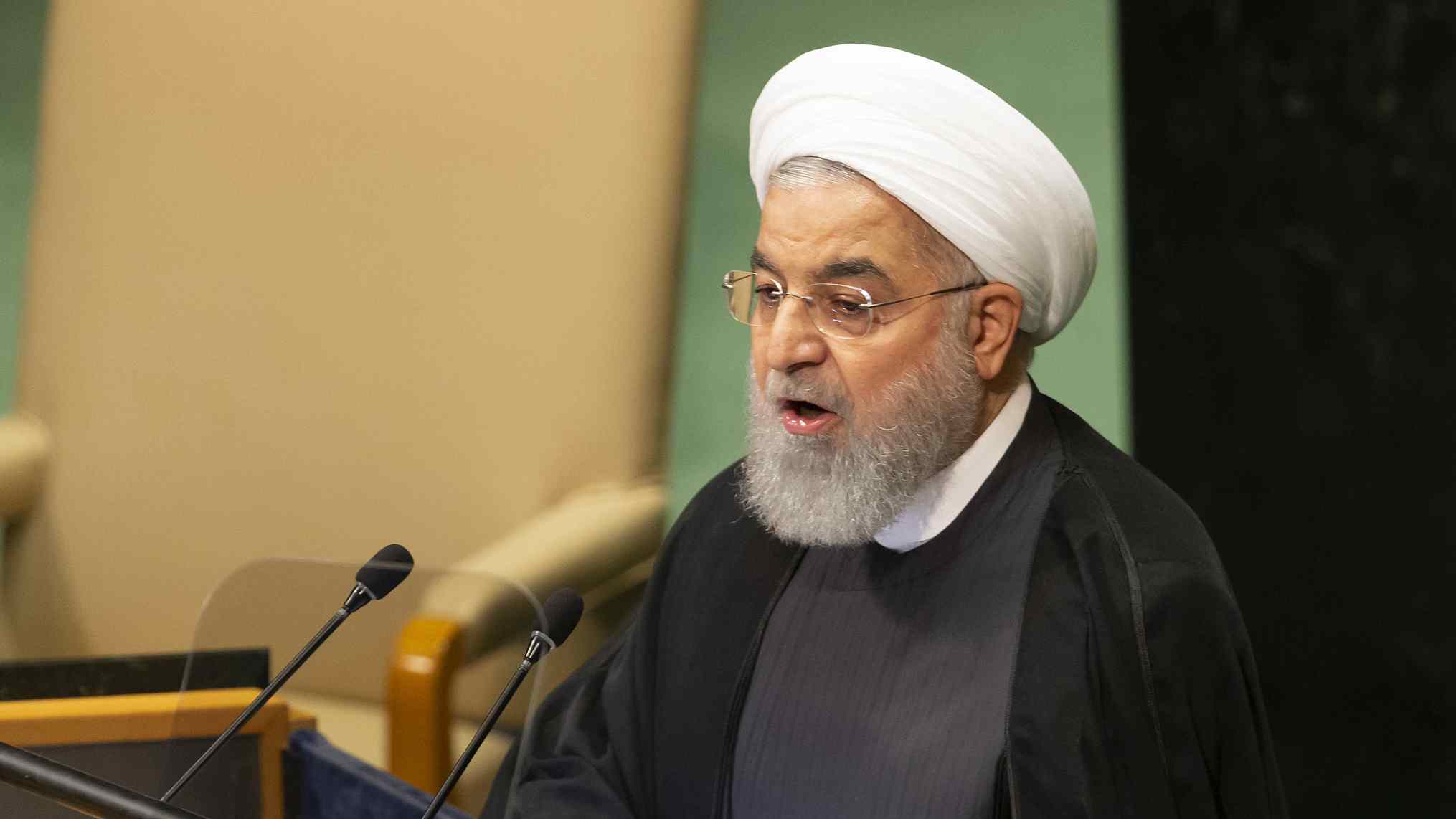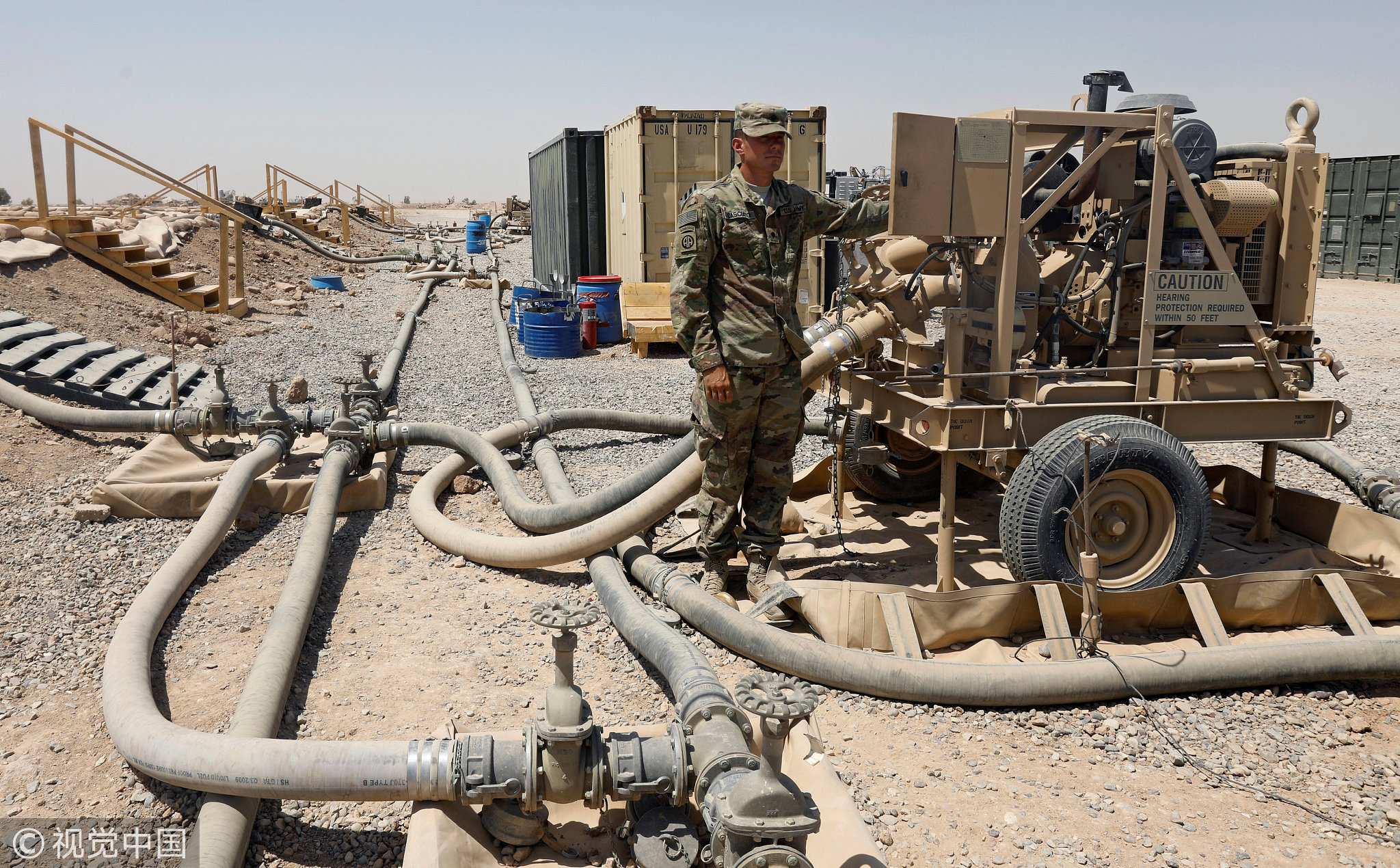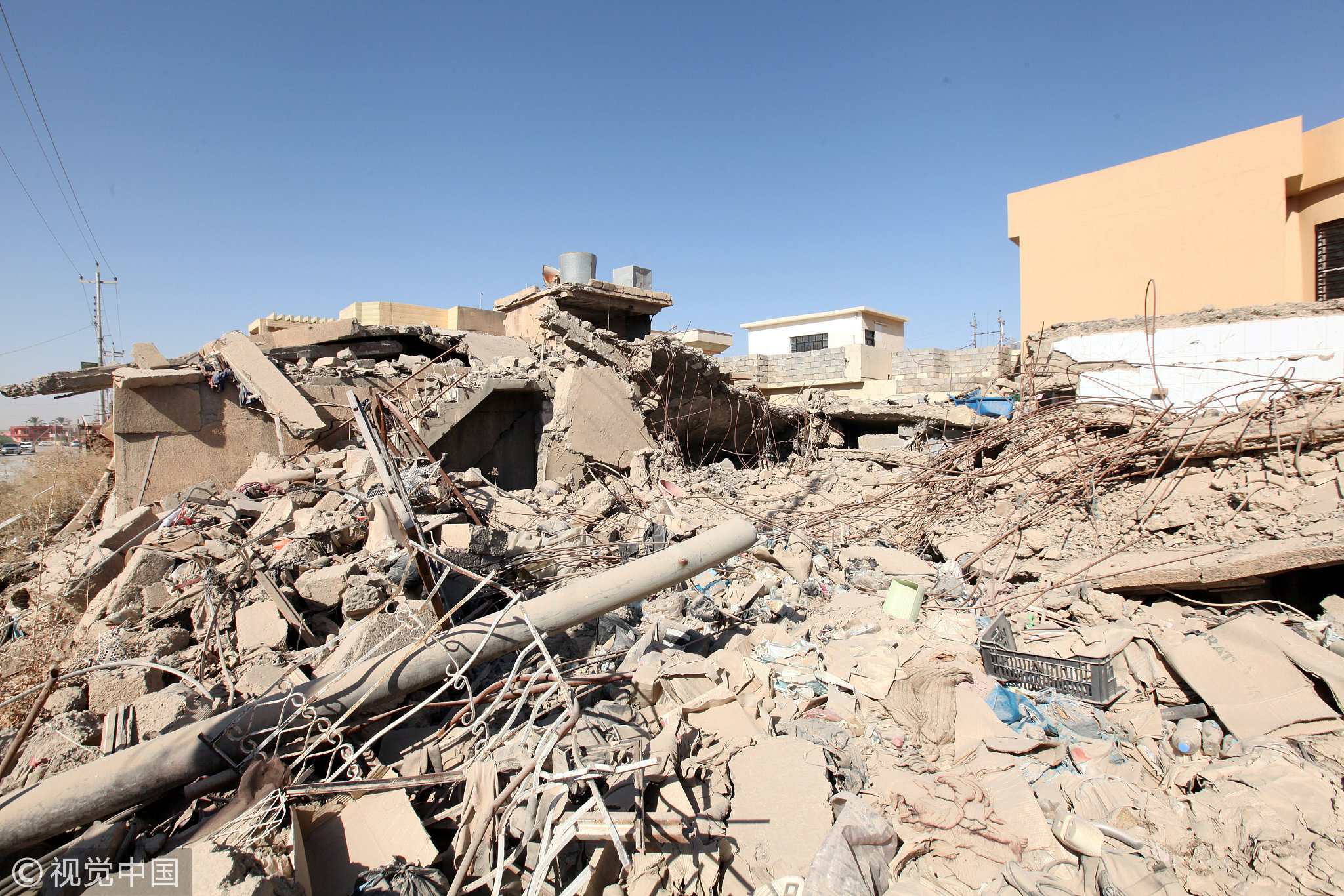
Opinions
16:07, 28-Sep-2018
Opinion: Can US cut the ties between Iraqi Shia with Iran?
Updated
15:58, 01-Oct-2018
Wang Jin

Editor's note: Wang Jin is a research fellow at the Charhar Institute and Syria Research Center of Northwest University in China. The article reflects the author's opinion, and not necessarily the views of CGTN.
Washington is considering drafting new laws imposing sanctions against Iraq Shia factions that are close to Iran to further keep up pressure against Iran. Given the powerful dominance status of Shia political groups in both Iraqi parliament and government, and the close relation between some Iraqi Shia factions and Tehran, if the new law is passed, it might threaten US-Iraq bilateral ties.
Washington has invested significant time and effort into Iraq over the past decade. From 2003 to 2018, U.S. has invested more than 2 trillion US dollars into Iraq to boost its economic development and alleviate Iraqi social crisis. Borrowing from a model used in Afghanistan, Washington also established Provincial Reconstruction Teams across Iraq led by U.S. diplomats and staffed by civilian subject matter experts to bring development assistance, technical and administrative capacity-building, and rule-of-law training directly to the provincial level of the country. From 2003 to 2014, Washington's influence over Bagdad was dominant and the former Iraqi Prime Minister Nouri al-Maliki enjoyed close relation with Washington.
However, Washington's influence in Iraq has been gradually overshadowed by Iran's growing influence. Ever since the Saddam government was overthrown in 2003, many important Shia figures that once refuged in Iran went back to Iraq. Many of them spent years in exile or in hiding in Iran, and the newly established Shia political and social groups in Iraq after 2003 such as Dawa Party and Islamic Supreme Council of Iraq, all enjoyed close relations with Iran. Some Iraqi militants in Shia areas of the country, such as Karbala and Sadr city of Bagdad, resisted US forces in 2007 with the assistance of Iran.

A US army solider fuel a military truck at Qayyara airbase west of Mosul, Iraq, August 10, 2017. /VCG Photo
A US army solider fuel a military truck at Qayyara airbase west of Mosul, Iraq, August 10, 2017. /VCG Photo
After the rise of ISIS in Iraq in 2014, US influence in Iraq significantly declined while Iran's influence strengthened, due to Iraqi government forces' weakness and incapability to resist the expansion of ISIS, the Shia militant groups in Eastern Iraq became the backbone of Iraqi national security and the military assistance from Iranian Islamic Revolutionary Guards, especially from the Quds Forces led by Qassem Suleimani. Iraq may not continue its stability and national unity without the cooperation and permission of Shia militant groups.
As a state full of Shia-Sunni-Kurdish triangular competition, Iraq's unique sectarian and ethnical structure make itself vulnerable to external interventions. Meanwhile, after war against ISIS extremists in Iraq Sunni area, and the Kurdish independence referendum and the ensuing civil conflict over Kirkuk between Kurdish Peshmerga and Iraqi central government forces, Iraq needs the assistance from Iran to help stabilize some militant groups, such as the People Mobilization Army (PMA, al-Hashd al-Shaabi), and to help monitor the Islamic Sunni extremists in Eastern Iraq.

Christian homes destroyed by Islamic State militants are seen in the Christian city of Qaraqosh, Iraq, September 12, 2018. /VCG Photo
Christian homes destroyed by Islamic State militants are seen in the Christian city of Qaraqosh, Iraq, September 12, 2018. /VCG Photo
Although Washington hopes to isolate Iran's influence in Iraq through sanctions targeting Iraqi Shia factions, Washington's sanction may not affect these factions. Many Shia factions in Iraq enjoy the common or similar ideological grounds with Iran, and perceive Iran's Velayat-e Faqih, or Islamic Clergies Domination System, as the example for future Iraq. Most of Shia groups' leaders do not travel outside of Iraq to US or other regional states that are close to Washington, and have no assets in US, therefore Washington's upcoming sanctions might have little impact over these Shia groups in Iraq, but they may further provoke the angry sentiments of many Iraqis towards the US.
Iraqi Shia groups and factions that might be on the Washington's sanction list are officially registered groups with important economic assets, professional media in Iraq and widely recognized regional or international reputations. Despite the fact that the United States has access to many tools on the international scene that allow it to impose some restrictions on the Iraqi Shia factions, it is unlikely that these steps will succeed in drastically distancing these factions from their close ties with Iran.
It is not difficult to trace many of Iraq's ills to a failed American policy in Iraq during the past decade: political and economic crises in the face of disappearing Iraqi sovereignty and a real absence of the principle of the separation of powers, with rampant financial and administrative corruption. For Iraq, Iran is not only an important regional power providing security and political support, but also an important neighbor that enjoys close historical, religious and social ties with various groups in Iraq. It is impossible to cut these ties with sanctions imposed from Washington.
(If you want to contribute and have specific expertise, please contact us at opinions@cgtn.com)

SITEMAP
Copyright © 2018 CGTN. Beijing ICP prepared NO.16065310-3
Copyright © 2018 CGTN. Beijing ICP prepared NO.16065310-3